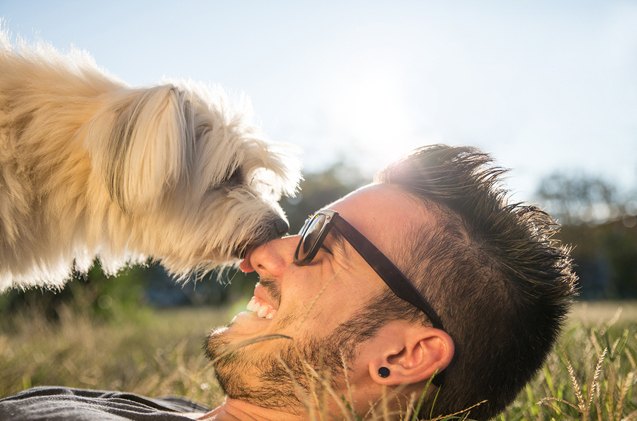Doggy See, Doggy Do? Study Looks At Dogs Adopting Owners’ Personalit

We’ve all heard the phrase that perception is reality. That if we simply believe something to be true then in our mind it becomes as real, as valid as if it were an absolute fact. But how far do we carry this belief when it comes to perceiving the emotions of our pets? How often do we find ourselves putting words in Rover’s mouth because we assume we “get” what’s going on in his little dog head? Consider the time you discovered the kitchen garbage all over the floor or the unmistakable puddle of urine floating your best shoes. Poor guy, that hang-dog look meant he knew he’d done wrong and felt guilty. Right? Maybe not so much.
Related: When It Comes To Sniffing Out Lies, You Can’t Get Fool A Dog
Truth is, recent research published in Anthrozoos says you may be projecting your own personality and interpreting your pet’s actions along the lines of how you yourself would react.
Don’t feel bad. There is actually a clinical term for it (which means you aren’t the only one) and it’s a big one. It’s called anthropomorphism and it refers to our tendency to treat animals as if they are human and have the same thoughts, behaviors and emotions that people do.
But it was Researchers at the Department of Psychology at Arcadia University in Pennsylvania who decided to take it one step further and see if our tendency to anthropomorphize (last time, I promise) animals included projecting our own personality traits onto our dogs. In layman’s terms, are we trying to turn Rover into a “mini me”.
Related: Dogs Listen To What We Say And How We Say It
The traits the researchers focused on were guilt, loneliness and anxiety and data was gathered through web-based studies that asked respondents to assess their own personality, their attitude towards dogs and other animals as well as their personal interpretation of animal behaviours.
Drum roll please. The research found pet owners who tend to feel guilty a lot also tend to project this personality trait onto their best buddy. This means that when the respondent viewed a series of ambiguous behaviors (such as a dog avoiding eye contact after doing something naughty) he or she perceived the little guy felt guilty where in actual fact it could simply be a learned response to having done something wrong. Respondents with tendencies towards loneliness or anxiety didn’t seem to see these same traits in the dog behaviors. And while researchers aren’t suggesting we can’t read our pooches, they did find some degree of our own personalities influence our interpretation of events.
But that’s not all. The scientists also sought to discover if assigning personality traits to dogs might influence a respondent’s support for animal welfare issues such as them being used for research or the wearing of fur or leather. Once again feelings of guilt led the parade as participants who reported seeing more guilt or anxiety in dogs also supported animal rights to a greater extent. Clearly the exercise of interpreting the thoughts and emotions of an animal generated a greater empathy amongst participants.
So what does all this mean? It means that the next time you step in a poochie puddle he likely doesn’t give a damn!
[Source: Psychology Today]

Sharing space with three seriously judgy Schnoodles and a feline who prefers to be left alone. #LivingMyBestLife
More by Mary Simpson























